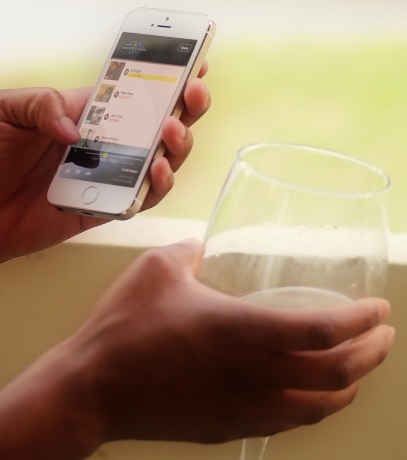New wearables from a U.K. mobile tech firm are being created to help in this specific purpose.
A company based in the United Kingdom called Mobetrics, which was founded last year and specializes in smart and wearable technology, has now received the funding that it requires to start the development of a new form of wearables that are meant for nuclear decommissioning.
The new “Second Sight” system is going to use a combination of existing tech, Google Glass and Android.
The wearable technology will work by measuring and analyzing the body of workers in nuclear decommissioning projects. This will help to provide a view in real-time of what their suit temperatures, heart rates and radiation dose readings are at any given moment. The purpose of monitoring and tracking this information is to help in improving the safety level during stressful operations. It is also designed to use Google Glass to stream live mages so that workers can obtain additional information and support as needed.
The wearable technology will also offer visual messaging and barcode scanning for additional guidance and info.
 Through these wearables, these workers will be able to obtain the data and technical guidance they require for more accurate, confident and efficient decision making. This helps to ensure that tasks will be completed with the greatest degree of effectiveness and safety possible.
Through these wearables, these workers will be able to obtain the data and technical guidance they require for more accurate, confident and efficient decision making. This helps to ensure that tasks will be completed with the greatest degree of effectiveness and safety possible.
Among the support Mobetrics has received includes that of partners from the University of Manchester, the National Nuclear Laboratory and Sellafield Ltd. According to Nick Whitehead, one of the company’s co-founders, “Mobetrics develops products that use the latest technology and by interacting closely with Sellafield we’ve been able to address the specific and unusual needs of their industry.”
He went on to explain that through the creation of new uses for hardware that is already commercially available, it means that businesses will have access to a whole new range of capabilities that have already been proven and have been deemed reliable.
Second Sight wearable technology also received funding and development from Innovus. This tech will be finding its way into the spotlight this week on November 4 in Manchester at the NDA Supply Chain Event.
Scientists are looking into the growing issue involving the fear of having to be without a mobile device.
A new research study has begun in order to take a new look at smartphone addiction from the angle of “nomophobia”, which is the term they have given to “no mobile phone phobia”, where the individual is afraid to be without a mobile device.
The research found that the human brain has started to think about mobile devices in a similar way to a relationship.
What it determined is that smartphone addiction and nomophobia could be the result of an interpretation that the brain has in terms of the acquisition and retention of information that is treated the same way as a relationship with a human being. What this interpretation from the brain is doing is leading to feelings of distress or anxiety in some people when they don’t have their mobile device with them or when they don’t know where it is. It has also meant that many people have become highly dependent on their smartphones in order to be able to fulfill some of their basic needs and to complete certain everyday tasks.
People now have a smartphone addiction to the point that their safety, learning and connection with others depends on the device.
 This dependence has expanded to the point that many people feel that without their devices, they would not be able to answer many of their question with regards to the state of their world and the people who are important to them. Moreover, the dependence that people have formed on those devices is on its way up. This helps to show why there could be psychological consequences from the relationship that has formed between people and their mobile devices.
This dependence has expanded to the point that many people feel that without their devices, they would not be able to answer many of their question with regards to the state of their world and the people who are important to them. Moreover, the dependence that people have formed on those devices is on its way up. This helps to show why there could be psychological consequences from the relationship that has formed between people and their mobile devices.
For instance, previous research has found that when we continually have external sources of information available and we feel that we can rely on those resources to discover what we want about whatever subject we want, our motivation to acquire and retain knowledge about a subject will decline. This means that people will not focus as much on actually learning something when they know they’ll be able to look it up again later.
The research has found that in this way, our smartphone addiction has taught us to treat our mobile devices as relationship partners. Previous to these devices, we would usually first consult other people when we wanted to obtain information we didn’t know. Now, we rely on our devices and when those gadgets go missing or aren’t there, it gives us a distressed feeling.
 Through these wearables, these workers will be able to obtain the data and technical guidance they require for more accurate, confident and efficient decision making. This helps to ensure that tasks will be completed with the greatest degree of effectiveness and safety possible.
Through these wearables, these workers will be able to obtain the data and technical guidance they require for more accurate, confident and efficient decision making. This helps to ensure that tasks will be completed with the greatest degree of effectiveness and safety possible.
 This dependence has expanded to the point that many people feel that without their devices, they would not be able to answer many of their question with regards to the state of their world and the people who are important to them. Moreover, the dependence that people have formed on those devices is on its way up. This helps to show why there could be psychological consequences from the relationship that has formed between people and their mobile devices.
This dependence has expanded to the point that many people feel that without their devices, they would not be able to answer many of their question with regards to the state of their world and the people who are important to them. Moreover, the dependence that people have formed on those devices is on its way up. This helps to show why there could be psychological consequences from the relationship that has formed between people and their mobile devices.